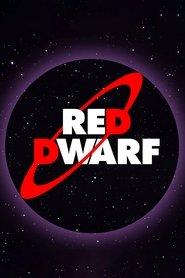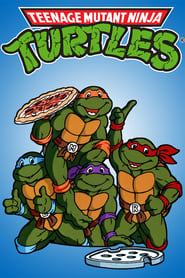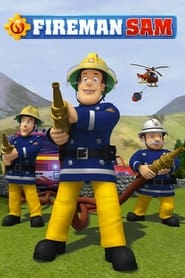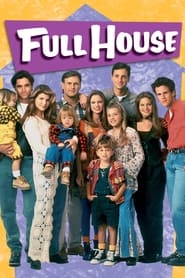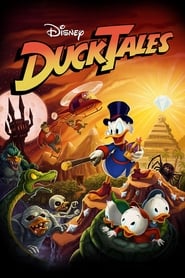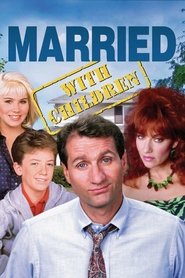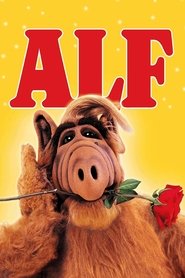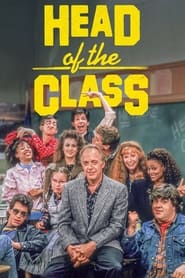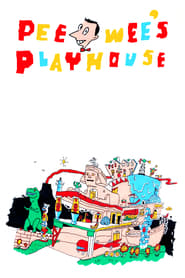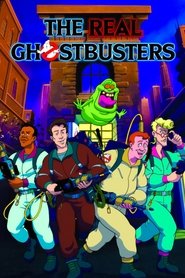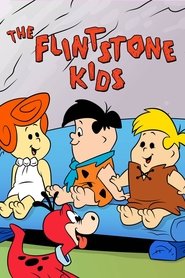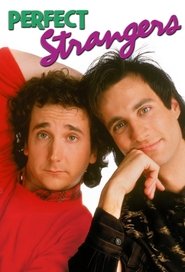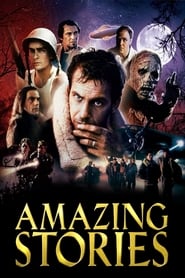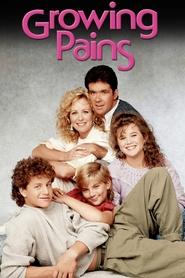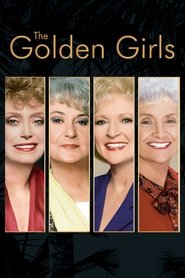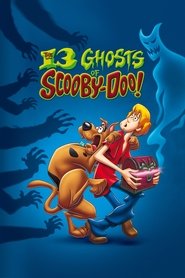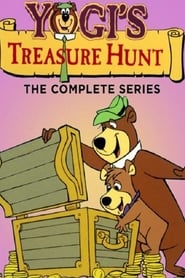New Comedy TV Series on Apple iTunes - Page 106
-
A Pup Named Scooby-Doo
1988
star 7.5The world's favorite chicken-hearted canine, as a puppy? That's right! And the old gang is back with him. Shaggy, Daphne, Velma, and Freddy are all here as gangly kids — goofing off, solving kid-size mysteries, and having run-ins with ghouls, ghosts, and goblins. -
Red Dwarf
1988
Red Dwarf
1988
star 8.1The adventures of the last human alive and his friends, stranded three million years into deep space on the mining ship Red Dwarf. -
Teenage Mutant Ninja Turtles
1987
star 7.8Four turtles fall into the sewers and are befriended by Hamato Yoshi a Japanese man sent to New York who was forced to live in the sewers. One day he sees a strange green glow which transforms the four turtles into human-like creatures. Hamato (now Master Splinter) changes into a giant rat from the green glow and teaches the turtles the skills of the ninja as they team up with news reporter April O'Neil to battle against Yoshi's arch enemy Shredder and Krang, an alien warlord from Dimension X. -
Fireman Sam
1987
Fireman Sam
1987
star 6.2Follow the adventures of fireman Sam and his colleagues as they protect the citizens of the Welsh town of Pontypandy. Whenever the alarm sounds, brave Sam and his co-workers can be counted on to jump into a fire engine, hop onto a helicopter, or even launch an inflatable lifeboat to battle blazes, mount rescue missions, or provide medical attention to those in need. -
Full House
1987
Full House
1987
star 7.6After the death of his wife, Danny enlists his best friend and his brother-in-law to help raise his three daughters, D.J., Stephanie, and Michelle. -
DuckTales
1987
DuckTales
1987
star 7.7Scrooge McDuck finds his hands full at home when nephews Huey, Dewey and Louie move to Duckburg. Joined by their loyal pals Launchpad McQuack, Gyro Gearloose and Mrs. Beakley, the DuckTales gang never fails to deliver a wealth of adventure. Get ready for a fortune of fun with DuckTales! -
Married... with Children
1987
star 7.7Al Bundy is an unsuccessful middle aged shoe salesman with a miserable life and an equally dysfunctional family. He hates his job, his wife is lazy, his son is dysfunctional (especially with women), and his daughter is dim-witted and promiscuous. -
ALF
1986
ALF
1986
star 7.7A furry alien wiseguy comes to live with a terran family after crashing into their garage. -
Head of the Class
1986
Head of the Class
1986
star 6.2Head of the Class is an American sitcom that ran from 1986 to 1991 on the ABC television network. The series follows a group of gifted students in the Individualized Honors Program at the fictional Monroe High School in Manhattan, and their history teacher Charlie Moore. The program was ostensibly a vehicle for Hesseman, best known for his role as radio DJ Dr. Johnny Fever in the sitcom WKRP in Cincinnati. Hesseman left Head of the Class in 1990 and was replaced by Billy Connolly as teacher Billy MacGregor for the final season. After the series ended, Connolly appeared in a short-lived spin-off titled Billy. The series was created and executive produced by Rich Eustis and Michael Elias. Rich Eustis had previously worked as a New York City substitute teacher while hoping to become an actor. -
Pee-wee's Playhouse
1986
Pee-wee's Playhouse
1986
star 7.1Join Pee-Wee Herman and his friends Chairry, Miss Yvonne, Cowboy Curtis, Jambi the Genie and others as they play around in Pee-Wee's magical Playhouse! -
The Real Ghostbusters
1986
star 7.7The continuing adventures of paranormal investigators Dr. Peter Venkman, Dr. Egon Spengler, Dr. Ray Stantz, Winston Zeddemore, their secretary Janine Melnitz and their mascot ghost Slimer. -
It's Garry Shandling's Show
1986
star 7.2Garry Shandling stars as himself, a neurotic, sardonic stand-up comedian who just happens to be aware he is a sitcom character. Garry spends just as much time interacting with the studio audience as he does the regular cast members, performing monologues and show-closing summations of the episode's events. However, everyone knows they're on TV, not just Garry; and the audience (itself a character) is often involved in the storyline. -
The Flintstone Kids
1986
The Flintstone Kids
1986
star 6.2Join Fred, Wilma, Dino, Barney and Betty in their formative years when they were precocious prehistoric preteens. Whether they’re riding to school on a brontosaurus’ back, skating down the street on wriggling dino boards or just rockin’ out, these kids are growing up the Bedrock way. -
Perfect Strangers
1986
Perfect Strangers
1986
star 6.7The chronicles of the rocky coexistence of midwestern American Larry Appleton and his distant cousin from eastern Mediterranean Europe, Balki Bartokomous. -
Yes, Prime Minister
1986
Yes, Prime Minister
1986
star 8.4James Hacker MP the Government's bumbling minister for Administrative Affairs is propelled along the corridors of power to the very pinnacle of politics - No. 10. Could this have possibly have been managed by his trusted Permanent Private Secretary, the formidably political Sir Humphrey Appleby who must move to the “Top Job” in Downing Street to support him, together with his much put upon PPS Bernard Wolley. What could possibly go wrong? -
Amazing Stories
1985
Amazing Stories
1985
star 7.4A truly amazing, fantastical, science fiction, funny and odd, and sometimes scary, sad and endearing anthology series presented by Steven Spielberg with guest appearances by many famous actors, actresses, and directors. -
Growing Pains
1985
Growing Pains
1985
star 6.5Fatherhood has taken on a whole new meaning for Jason Seaver, who has assumed the chores of cooking, cleaning and minding the kids so that his wife, Maggie, can pursue a career in journalism after spending 15 years as a housewife. -
The Golden Girls
1985
The Golden Girls
1985
star 7.5Four Southern Florida seniors share a house, their dreams, and a whole lot of cheesecake. Bright, promiscuous, clueless and hilarious, these lovely, mismatched ladies form the perfect circle of friends. -
The 13 Ghosts of Scooby-Doo
1985
star 7.9Shaggy and Scooby-Doo and friends must return 13 ghosts which they inadvertently released to a magical chest. Together with Daphne and Scrappy-Doo, along with newcomer Flim-Flam, they travel the world facing the ghosts that must be returned to the chest. -
Yogi's Treasure Hunt
1985
Yogi's Treasure Hunt
1985
star 7.2Yogi's Treasure Hunt is a cartoon series first aired in 1985 as part of the weekend/weekday morning programming block, The Funtastic World of Hanna-Barbera. It is the fourth incarnation of Hanna-Barbera's Yogi Bear.
 Netflix
Netflix
 Amazon Prime Video
Amazon Prime Video
 Apple iTunes
Apple iTunes
 Apple TV Plus
Apple TV Plus
 Disney Plus
Disney Plus
 Google Play Movies
Google Play Movies
 Paramount Plus
Paramount Plus
 Hulu
Hulu
 HBO Max
HBO Max
 YouTube
YouTube
 fuboTV
fuboTV
 Peacock
Peacock
 Peacock Premium
Peacock Premium
 Amazon Video
Amazon Video
 The Roku Channel
The Roku Channel
 AMC+
AMC+
 Kocowa
Kocowa
 Hoopla
Hoopla
 The CW
The CW
 Vudu
Vudu
 Starz
Starz
 Showtime
Showtime
 PBS
PBS
 Pantaflix
Pantaflix
 FXNow
FXNow
 Tubi TV
Tubi TV
 Kanopy
Kanopy
 Comedy Central
Comedy Central
 Crunchyroll
Crunchyroll
 Microsoft Store
Microsoft Store
 Redbox
Redbox
 Sun Nxt
Sun Nxt
 ABC
ABC
 DIRECTV
DIRECTV
 Crackle
Crackle
 Fandor
Fandor
 Plex
Plex

